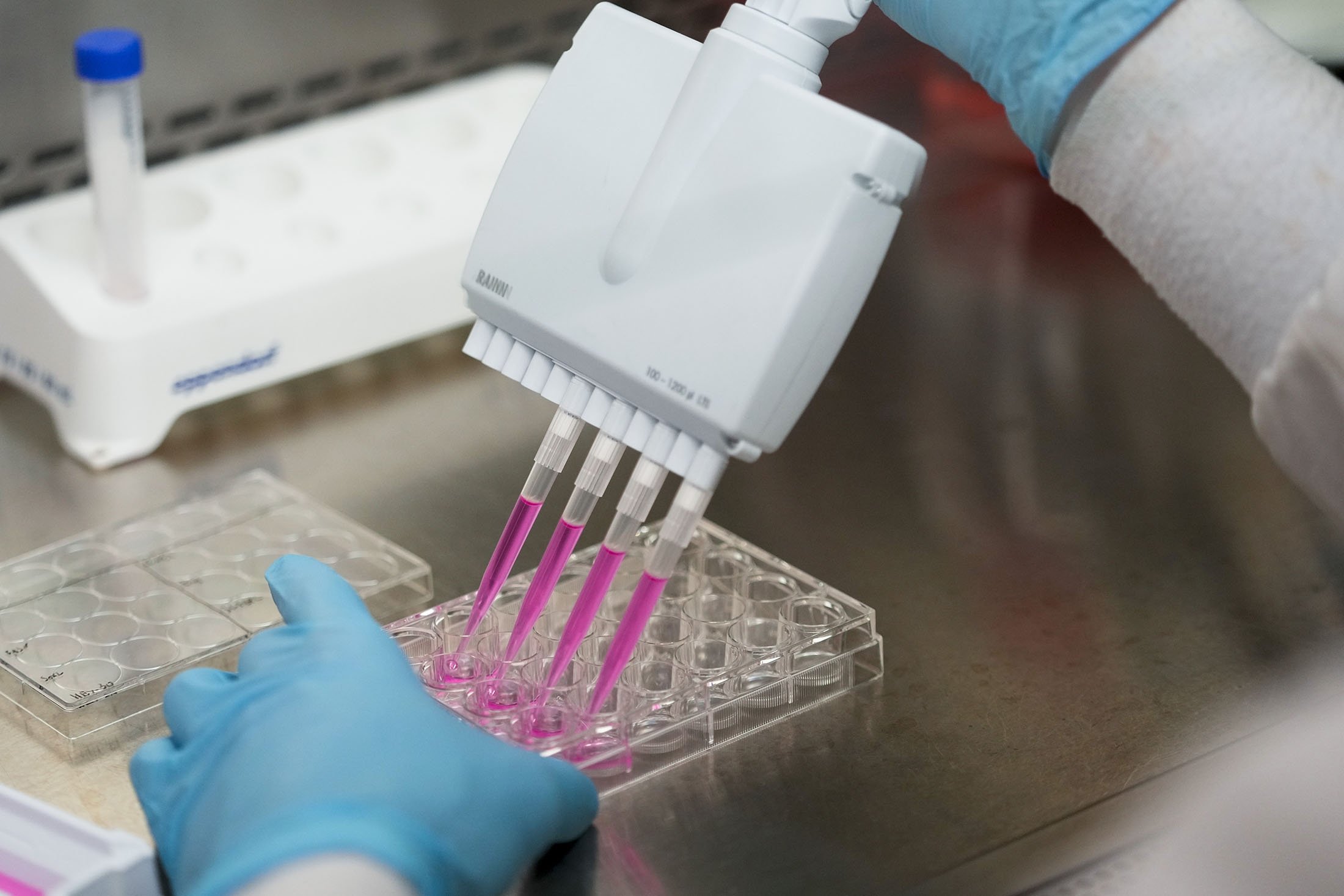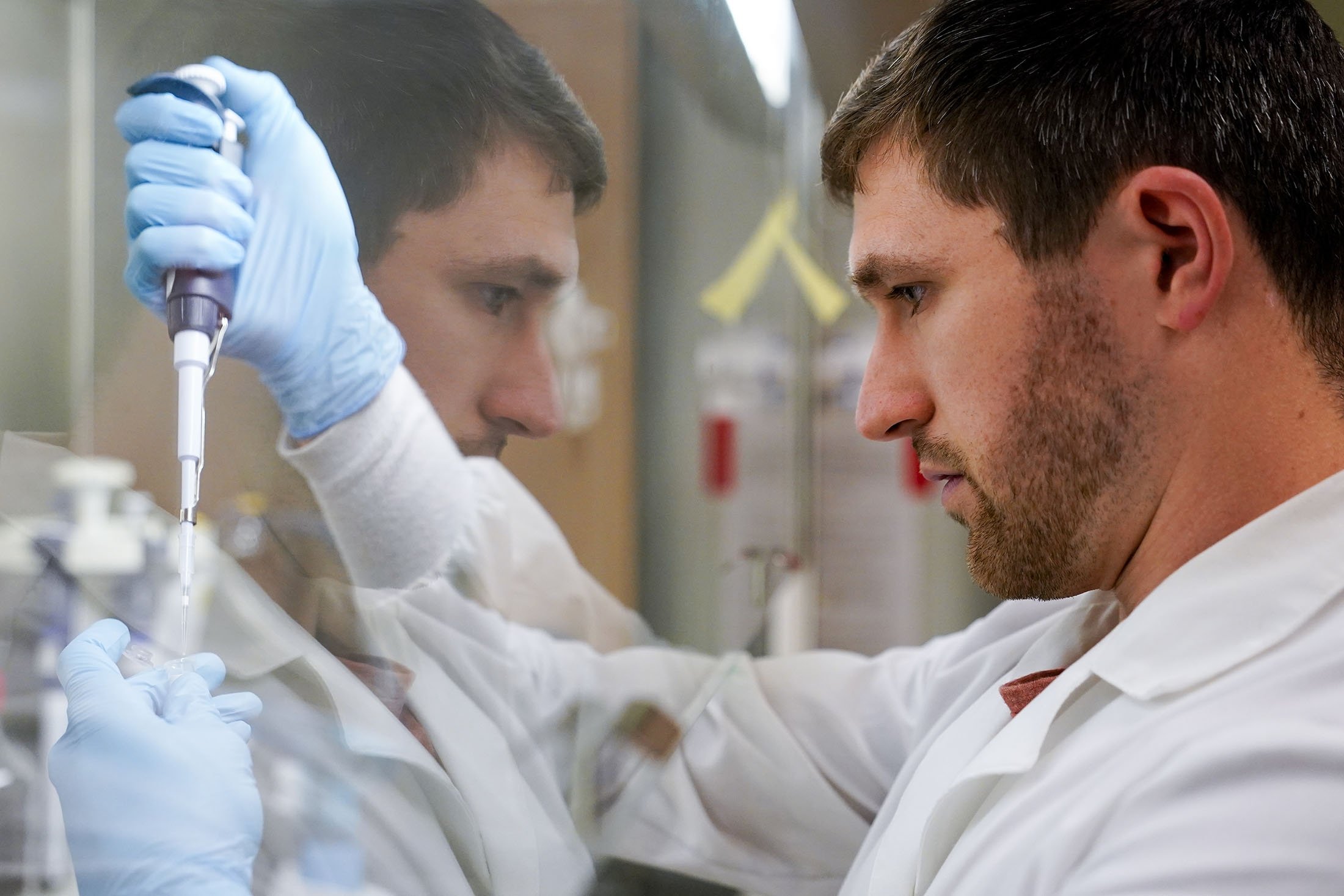© Turkuvaz Haberleşme ve Yayıncılık 2026
After decades of limited success, the next significant advance in cancer treatment could be a vaccine, scientists say as research has reached a turning point, with many predicting more vaccines will be out in five years.
These aren't traditional vaccines that prevent disease but shots to shrink tumors and stop cancer from coming back. Targets for these experimental treatments include breast and lung cancer, with gains reported this year for deadly skin cancer, melanoma and pancreatic cancer.
"We're getting something to work. Now we need to get it to work better," said Dr. James Gulley, who helps lead a center at the National Cancer Institute that develops immune therapies, including cancer treatment vaccines.
More than ever, scientists understand how cancer hides from the body's immune system. Cancer vaccines, like other immunotherapies, boost the immune system to find and kill cancer cells. And some new ones use mRNA, which was developed for cancer but first used for COVID-19 vaccines.

For a vaccine to work, it needs to teach the immune system's T cells to recognize cancer as dangerous, said Dr. Nora Disis of UW Medicine's Cancer Vaccine Institute in Seattle. Once trained, T cells can travel anywhere in the body to hunt down danger.
"If you saw an activated T cell, it almost has feet," she said. "You can see it crawling through the blood vessel to get out into the tissues."
Progress on treatment vaccines has been challenging. The first, Provenge, was approved in the U.S. in 2010 to treat prostate cancer that had spread. It requires processing a patient's own immune cells in a lab and giving them back through IV. There are also treatment vaccines for early bladder cancer and advanced melanoma.
Early cancer vaccine research faltered as cancer outwitted and outlasted patients' weak immune systems, said Olja Finn, a vaccine researcher at the University of the Pittsburgh School of Medicine.
"All of these trials that failed allowed us to learn so much," Finn said.
As a result, she's now focused on patients with earlier diseases since the experimental vaccines didn't help with more advanced patients. Her group is planning a vaccine study in women with low-risk, noninvasive breast cancer called ductal carcinoma in situ.

More vaccines that prevent cancer may be ahead too. Decades-old hepatitis B vaccines prevent liver cancer and HPV vaccines, introduced in 2006, prevent cervical cancer.
Others are developing vaccines to prevent cancer in people with precancerous lung nodules and other inherited conditions that raise cancer risk.
"Vaccines are probably the next big thing" in the quest to reduce cancer deaths, said Dr. Steve Lipkin, a medical geneticist at New York's Weill Cornell Medicine, who is leading one effort funded by the National Cancer Institute. "We're dedicating our lives to that."
Drugmakers Moderna and Merck are jointly developing a personalized mRNA vaccine for patients with melanoma, with a large study to begin this year. The vaccines are customized to each patient based on the numerous mutations in their cancer tissue. A vaccine personalized in this way can train the immune system to hunt for cancer's mutation fingerprint and kill those cells.
However, such vaccines will be expensive.
"You basically have to make every vaccine from scratch. If this wasn't personalized, the vaccine could probably be made for pennies, just like the COVID-19 vaccine," said Dr. Patrick Ott of Dana-Farber Cancer Institute in Boston.
